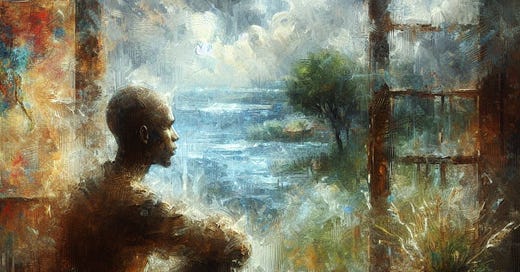Life is filled with challenges that often feel like punishments: setbacks, pain, and suffering that can seem unfair or overwhelming. Yet, the quote “What punishments from God are not also gifts?” invites us to reframe how we see these difficulties. Whether attributed to divine will or simply the natural course of life, hardships are opportunities for growth, self-awareness, and transformation.
The Duality of Punishment and Gift
At its core, this idea reflects the Stoic philosophy of resilience and acceptance. Stoics believe that life’s trials are not merely obstacles but tools for self-improvement. Each “punishment” teaches us something essential: humility, patience, courage, or wisdom. The ego-lifter who injures themselves in the gym learns the value of self-awareness and the dangers of overestimating their abilities. The lesson, though painful, is a gift.
In reframing punishments as gifts, we align ourselves with life’s natural ebb and flow. Pain becomes a teacher, and mistakes become stepping stones rather than barriers. This mindset not only helps us endure suffering but also allows us to find meaning in it.
Lessons Through Suffering
Khalil Gibran beautifully articulates this duality: “The most massive characters are seared with scars.” It is through suffering—physical, emotional, or spiritual—that we are strengthened and shaped. Those who experience life without challenges may find it easy, but ease rarely forges resilience or depth of character.
In the gym of life, the metaphorical barbell is heavy, and progress requires effort. Overcoming resistance, even when it hurts, builds strength. Each hardship forces us to confront our weaknesses and equips us with tools to navigate future challenges with greater clarity and determination.
Empathy Through Pain
One profound gift of suffering is empathy. Pain makes us more aware of the struggles of others. An injury, for instance, might not just humble us but also allow us to understand what it’s like for someone who lives with chronic pain or disability. This shared understanding fosters connection and compassion, two cornerstones of human existence.
Without suffering, it’s easy to overlook the difficulties others face. But when life wounds us, it also opens our hearts to others’ wounds, creating a space for light, understanding, and community.
Choosing Growth Over Ease
As the great Bruce Lee said, “Do not pray for an easy life. Pray for the strength to endure a difficult one.” Strength and character emerge not from avoiding difficulty but from facing it head-on. In a hypothetical conversation with God, one might request virtues like courage or wisdom, only to realize that such gifts require the trials that cultivate them.
The choice is clear: either embrace the pain and grow stronger or avoid it and remain weak, unfulfilled, and disconnected from life’s deeper purpose.
Turning Punishment Into a Gift
Ultimately, the quote reminds us that life’s challenges—be they heartbreak, failure, or physical pain—are not solely punishments but also opportunities to evolve. The wound, as Rumi eloquently states, is where the light enters.
So, as you face the inevitable hardships of life, consider the perspective this quote offers: that punishments can also be gifts, leading you to strength, resilience, and greater self-awareness. Let this be a guide for the year ahead: Embrace not only the rewards but also the punishments, for they are both part of the same journey toward becoming your best self.
***If you’d like to become a paid member but cannot afford it, feel free to contact me directly; I’ll happily provide a complimentary membership (no questions asked).
Stay Connected
Brandon Tumblin is most well-known for his podcast, The Strong Stoic Podcast, where he discusses philosophical ideas (solo and guest episodes).
Brandon is also a writer for THE STOIC, the official journal of The Stoic Gym.
The Strong Stoic Newsletter is a reader-supported publication. To receive new posts and support my work, consider becoming a free or paid subscriber.




